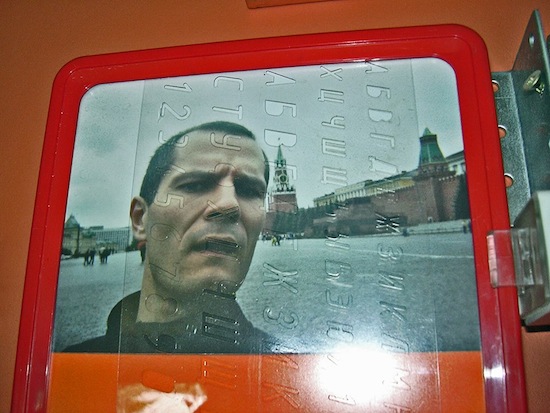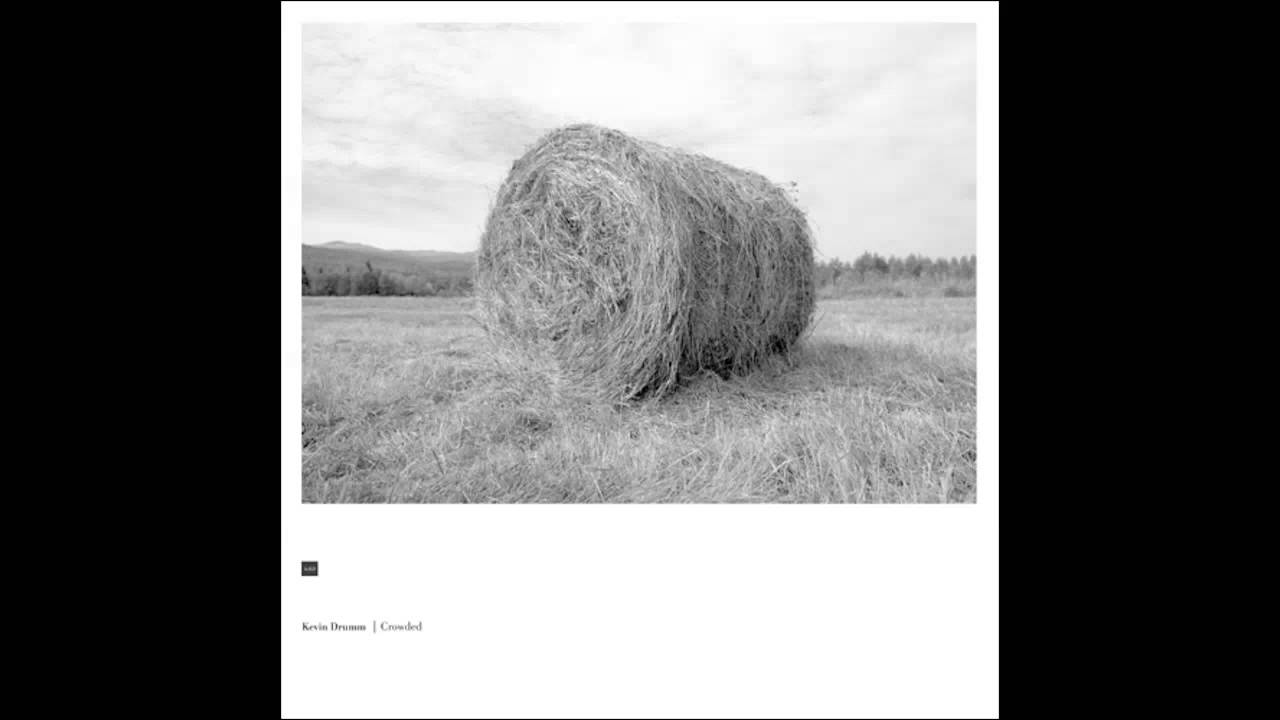Poland’s music development is unique within the context of post-communist Europe. Drawing on its rich musical legacy, the fairly lax attitude of the authorities towards "underground" and avant-garde music during the previous regime – festivals such as Warsaw Autumn have been going on almost uninterruptedly since 1956 – as well as its size, Poland has become a musical force to be reckoned with.
This is not only thanks to hosting festivals with the latest on trend stars at its numerous well-funded international festivals, but also from a fascinating domestic scene that gets stronger ever year. "Around two years ago, there was this blast of new creativity, new labels appearing every week. It was crazy. It brought a lot of optimism," says Mik.Musik’s Wojciech Kucharczyk. "Apart from that, Poland is a bit of an uncharted territory for listeners and journalists. There’s so much going on at the moment. The bands, the festivals, the labels. We’re trying to use that momentum and I’m eager to see what comes out of it," adds Zoharum’s Michal Porwet.
Here we present an overview of just some of the noteworthy imprints that have become the driving force of the new Polish avant garde.
JASIEŃ
With only three releases under its belt, Jasień is one of the latest additions on the Polish DIY/ experimental publishing topography. "There’s no philosophy per se, but we like to think we release music that falls in between cracks. The Polish indie scene is very eclectic but there’s so much going on that a lot of the good stuff gets overlooked," say Emil and Joanna, Jasień’s creators. From Evvolves’ dreamy shoegaze to the, notably, deconsctructed plunderphonics of Jakub Lemiszewski, the Polish exponent of hauntology, Jasień’s sonic stamp proudly defies any categorisation.
BDTA
"The idea is quite simple – most of our releases are made on CDr, in a thoroughly DIY way and sold cheaply, for ten PLN [approximately three euros]," says Michal Turowski of BDTA, formerly Oficyna Biedota, the Warsaw based imprint. The label was launched with a release by Bolesław Wawrzyn, an amateur field recording artist fascinated by the phenomenon of Kirlian photography, which supposedly captures people’s aura on film. BDTA’s catalogue has followed in a similar vein – recording the etherealness and melancholia of an uncertain era onto a physical medium that is affordable to all. BDTA has recently launched a new label focused on lo-fi field recording called LASY PAŃSTWOWE.
INSTANT CLASSIC
Krakow has been firmly put on the experimental afficionado’ s mental music map thanks to the Unsound Festival, but it is also the home of Instant Classic. The audacious label has lived up to its cocksure name with releases ranging from experimental metal, noise and hardcore to rock, neo folk and jazz… hell, there’s even a Merzbow record. "The label’s breakthrough came, interestingly, with the release of Stara Rzeka’s Cień Chmury Nad Ukrytym Polem. Both the album title and its musical content had seemed to be an unlikely success for the artist and the label, especially outside of Poland (try pronouncing the title)," explains label head Maciek Stankiewicz.
ZOHARUM
Aside from the capital and few southern cities, a great deal of Poland’s underground music is centered around the Tricity area in the north. The Solidarity base and seaport Gdansk is the home of Zoharum, the purveyors of post-industrial in Poland, active since 2007. Zoharum’s Michal Porwet says: "…apart from interesting newcomers, we have managed to sign established projects such as Troum, Rapoon and Hybryds. Organic growth lies at the roots of our philosophy: we don’t do it for profit – we do it, because our loyal fans fund our future releases."
WOUNDED KNIFE
With their hand-made releases and plenty of zeal, this Warsaw based avant-garde imprint is wholeheartedly devoted to the DIY ethos, which has not only been the staple of the global musical underground for several decades, but also the only way how to publish anything that wasn’t sanctioned during pre-89 regime in this region. "The most important thing is that we don’t want to focus exclusively on Polish artists – some of them are from the US, others from the rest of Europe. The artist always receives quite a lot of copies, since we just love the idea that our tapes are spreading among people thousands of miles away from our home…"
PAWLACZ PERSKI
Pawlacz Perski counts as another avant-garde advocate, eschewing stylistic categories in favour of extracting the essence of experimentalism through its various guises, from music concréte to improv. "At the moment, most of the activities of Pawlacz Perski take place in Warsaw, due to the fact that the main activist – Mateusz lives there. There is also a completely new quality to the city, as this market for independent publishers has become popular in Poland. There are regularly held events such as trade fairs, showcases, meetings and other events associated with particular labels," say the label bosses. "This is obviously a good platform to exchange ideas and records, but also bad jokes, high fives and toasts."
ALTANOVA
Sebastian Buczek is one of the great bona fide outsider artists of Poland. With a penchant for photographing parasites and sojourns in the Amazon rainforest, Buczek has been involved in the music scene for around 15 years experimenting with various idiosyncratic recording techniques and materials including beeswax and chocolate. "The AltanovaPress label is the only one in the world providing records pressed on the futuristic polymer Polycaprolactone (PCL), discs which enable the listener to erase the music on them, whilst retaining their lo-fi qualities and experience of sound. PCL allows every user to recycle records in home conditions. It is very easy to reshape them using a cup of hot water", he explains.
SANGOPLASMO
One of the leading cassette labels on the Polish experimental/electronic scenes, established by Lubomir Grzelak, also known under his woozy sampledelic dance project Lutto Lento, paved the way for newer imprints who all champion a similar aesthetic. Kicking off in style with the wonderfully odd Aranos, Sangoplasmo over the last four years, brought to life such gems as Katapulto’s psychotropic recordings about animals in various voices, while internationally renowned names such as Ensemble Economique, Decimus or Burial Hex also feature, as well as Piotr Kurek with the label’s bestseller Edena. "It’s basically an experimental music label, not really promoting any music genre specifically," says Grzelak from Warsaw. "So you can find synth stuff as well as drone or more rhythm-based releases on there. Elusive, unaware, ephemeral."
DUNNO
"DUNNO tries to capture elusive music phenomena and concentrates on seemingly meaningless moments such as an empty dancefloor at 2 AM or the weird silence when the needle flies off and the famous DJ tries to put it back. It focuses on strange, awkward and mostly danceable music – but not only. But honestly, I dunno," professes journalist, DJ and label boss Filip Lech. The label, which he co-runs with Sangoplasmo’s Grzelak, focuses on "non-linear dance music" as demonstrated on the cassette sampler that featured Piotr Kurek under his Heroiny moniker or the modular synth freak Wilhelm Bras.
BOCIAN
Under the leadership of Grzegorz Tyszkiewicz, Bocian has cemented its position as one of the most important platforms for Polish as well as international improvised and experimental music. Bocian draws on the tradition of Polish sonorism, which accentuates the qualities of sound as such. Its roster includes established names of Polish contemporary avant-garde such as Robert Piotrowicz or Anna Zaradny, as well as the likes of Kevin Drumm, with his wonderful Crowded LP, and Maja Ratkje.
Bôłt
Bôłt‘s raison d’etre, according to its director Michał Mendyk, was the "lack of proper phonographic representation of experimental music – both contemporary and historical – from Poland and Eastern Europe". Their releases try to connect the dots between the famous Polish vanguards of electro-acoustic music, centred around the Polish Experimental Radio Studio, with the younger generation of Polish and Eastern European composers. "Actually, the continuity between Polish experimental and improvised music of 60s and 70s and contemporary Polish composers is missing. In my opinion it is caused by the lack of proper information and misleading stereotypes. I suppose the situation is similar in countries like Romania or Lithuania. There is a strong tendency to look for inspiration among current global trends, which leads to aesthetic unification and lack of diversity and local artistic identity. I am trying to work against this."
MONOTYPE
Over the decade of its existence, MonotypeRec has risen from its bedroom modus operandi to a thriving concern which employs four people. Similar to most of the aforementioned labels its output is heterogenous and ranges from noise, techno, jazz and free improv to experimental and electronica. The late doyen of Polish noise Zbigniew Karkowski’s last album was posthumously released by Monotype and their breakthrough came with Francisco Lopez’s Live In Auckland. "We have our own cyclical event Strefa Monotype. This year, we’ve organized our first two-day festival with headliners that include Rashad Becker, Kevin Drumm, Helm and Max Loderbauer. We’ve also decided to release something that is very rare in Polish stores – a printed music magazine," says label boss Jakub Mikolajczyk.
LATARNIA
Latarnia is a label that manifests the increasingly cross-pollinatory nature of Polish underground, as a cooperation of Przemysław Jankowiak also known as Etamski and LDZ Festival organiser Wojciech Krasowski of the now-defunct imprint Few Quiet People. The latter’s focus on ambient and drone has been expanded on Latarnia, one of its three releases, for instance, is the cold wave and punk inspired Normal Echo. "Latarnia is not about looking for new bands or tunes, it’s more about gathering music which fits to the hazy style that we particularly appreciate," says Krasowski.
MIK.MUSIK.!
Technically, Mik.Musik.! has been in existence for twenty years. It was established in the 90s, during the chaotic days of the "transition period" after the fall of the Iron Curtain, by musician and label owner Wojciech Kucharczyk. Since then Mik.Musik.! has developed in a rapidly developing way. "In the 90s there were few truly independent labels for things I was interested in, like OBUH, Nefryt, Antena Krzyku, Blauhoffer. We knew each other, but the connections were rather remote in general. There was no chance to build something wider and stronger, there were no festivals, no infrastructure, no instruments, NO INTERNET. Of course, we could also say that it was better, because everything was welcome, there was no market-oriented thinking, no PR, just pure creativity and the future to conquer, but also extreme loneliness," says Kucharczyk from his Silesian home. Things changed quickly with the dawn of the new millennium, which marked Poland’s EU entry as well as the proliferation of internet and social media. Coinciding with the year of the global crisis, in 2008, Kucharczyk took a break from Mik for several years, only to return recently with renewed enthusiasm. "And almost at the same moment, many other people started to make everything from scratch, several new labels were born. I still don’t know why exactly this was the case, but maybe it was the effect of the crisis in general, a very bad situation on the record market, a change of the system (internet is the winner)… We live in times, when DIY makes much much sense than anytime before. So we do it ourselves."
Further Polish labels to check:
More from Lucia Udvardyova here
Watch this space for a deeper exploration of Polish DIY labels coming soon, starting with Bocian



